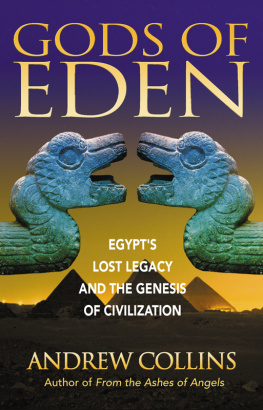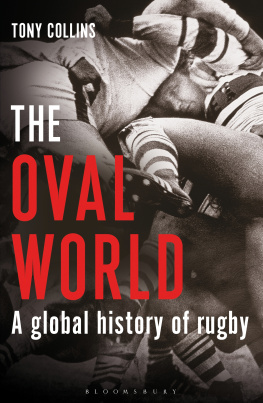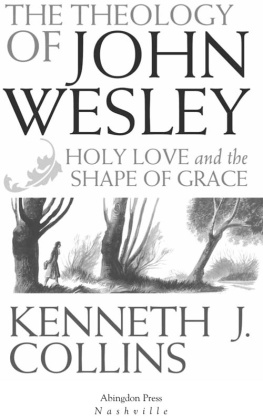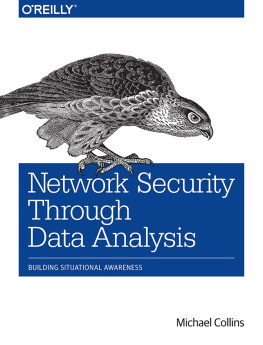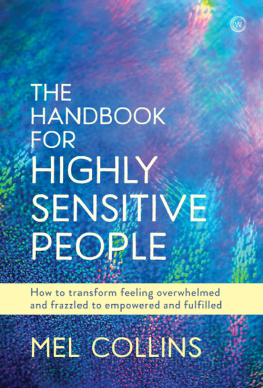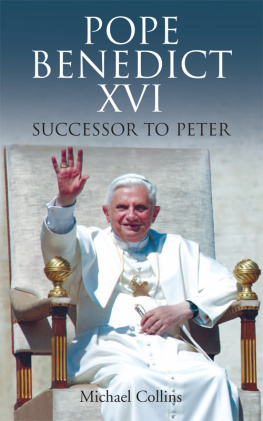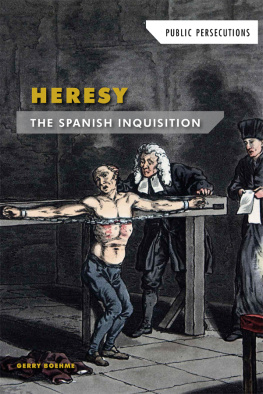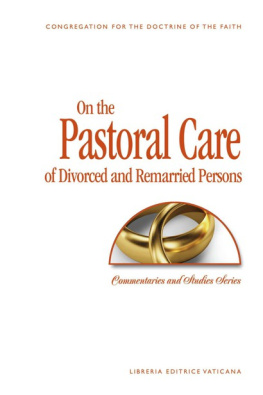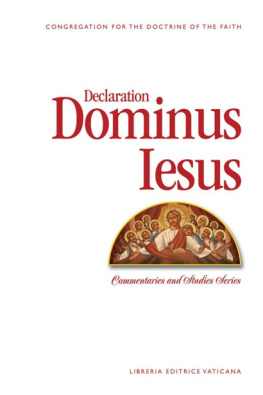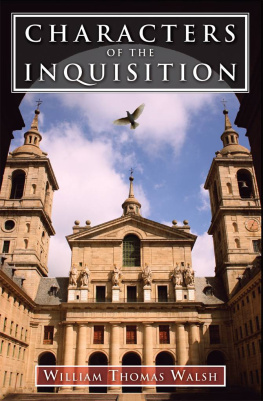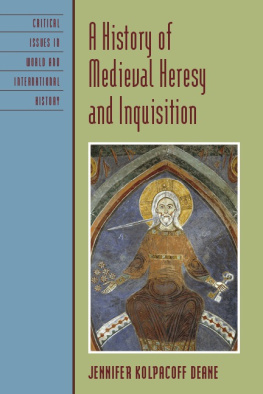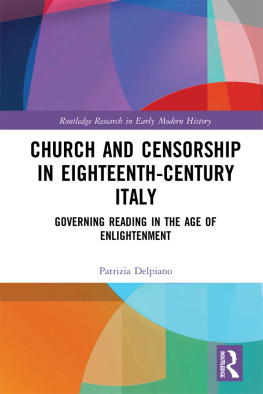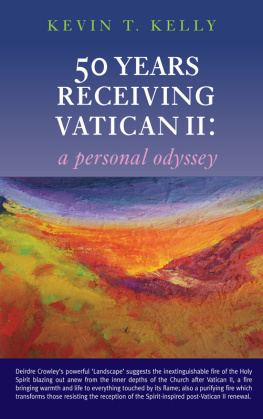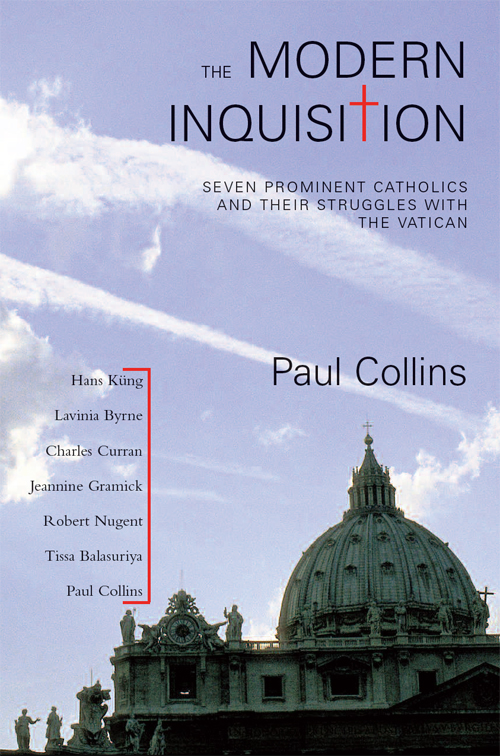This edition first published in the United States in 2002 by
The Overlook Press, Peter Mayer Publishers, Inc.
N EW Y ORK :
141 Wooster Street
New York, NY 10012
www.overlookpress.com
For bulk and special sales, please contact ,
or write us at the above address.]
Copyright Paul Collins 2001, 2002
Originally published as From Inquisition to Freedom
All rights reserved. No part of this publication may be reproduced or transmitted in any form or by any means, electronic or mechanical, including photocopy, recording, or any information storage and retrieval system now known or to be invented, without permission in writing from the publisher, except by a reviewer who wishes to quote brief passages in connection with a review written for inclusion in a magazine, newspaper, or broadcast.
ISBN: 978-1-4683-1106-8
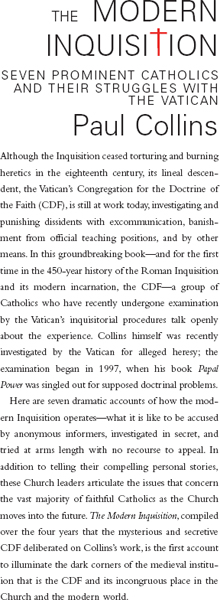
T his is a book about the inner workings of the Vatican, intellectual freedom, and passionate and deeply held convictions. It also contains the personal stories of seven Catholic sisters and priests who have experienced a unique inquisitorial process: examination of their opinions, writings and even their consciences by the Vaticans Congregation for the Doctrine of the Faith (CDF). But this is not just about their personal stories. What happened to them typifies the tensions and contradictions within the contemporary Catholic Church and exposes the forces that have already alienated from the policies of the Vatican a sizeable majority of thinking Catholics in many parts of the world.
The seven protagonists in this book represent the kind of agenda embraced by most committed Catholics in the Western world, as well as many in Latin America, Asia and Africa. These Catholics are demanding a more decentralised, participative approach to the Church, with much of its decision-making authority being devolved to local communities and national conferences of bishops. The Vatican and the CDF are supported by a small but influential minority of Catholics who want to concentrate all power and authority in the papacy. One of the most potent weapons used to rein in their fellow Catholics is the secret reporting of bishops, priests, sisters and laity to Rome for supposed heresy, deviations or dissent from Catholic belief and practice.
The prominent English Catholic journalist, Clifford Longley, writing in the respected London weekly, the Tablet, has compared being turned into the Vatican for investigation by the CDF to what Judas did to Christ when he went to the chief priests to betray him. I certainly felt a sense of betrayal in late January 1998 when I discovered that I had been delated (denounced) to Rome some time in 1997 for so-called doctrinal problems with my book Papal Power. It was a rude reminder that the Inquisitions Australian minions are still alive and well.
My personal experience of this process has prompted this book, which contains my own story and those of six other well-known Roman Catholic sisters and priests who have been similarly investigated. In November 1999 I visited Sri Lanka, Germany, the UK and the US to interview all the contributors and to get some understanding of their pastoral and theological approach as well as of the local context.
The first thing that struck me about the people featured in this book was how psychologically well adjusted they are. Articulate, calm and intelligent, all of them have a healthy sense of humour and can laugh at themselves, a key prerequisite in anyone called to a prophetic role. But at a deeper level you perceive in them an inner strength and determination, a passionate commitment to God, to their ministry and to the search for the truth and the inner meaning of Christian existence. You also find a deep love of the Catholic Church and a complete absence of paranoia or any feeling of persecution. Never once did any of them suggest that they had been badly done by, either by the Vatican or by their religious orders, despite a complete clarity about the injustice of the process imposed on them by the CDF and by others in the Church.
In fact, as their stories show, these men and women are among the genuine prophets of the Catholic Church at the present time. While what has happened to them is compelling as personal storytelling, it also points towards the agenda that will guide the Catholic Church into the future. This is because they articulate the issues that most concern the vast majority of faithful Catholics and give expression to their faith-experience.
For the first time in the 450-year history of the Roman Inquisition and its lineal descendant, the CDF, a group of Catholics who have recently undergone examination by the Vaticans inquisitorial procedures talk openly about the experience and the effect the process had on their vocations and careers, and describe in detail how the CDF operates. The interviews clearly reveal a number of things about the CDF. First, it is obvious that ultimately the CDF does not play by any rules, even its own. By any modern standards of jurisprudence its processes are secretive, inquisitorial, often blatantly unfair to the accused and lack any application of the basic principles of human rights. Despite the Churchs good record in this area in the broader, secular world, the CDF completely ignores human rights and shows no respect for normally accepted due process in its interactions with the accused. It is willing to invade their inner conscience and demand that even the most intimate and deeply held conscientious views be revealed. Fundamentally, the CDF lives in a time warp: despite attempts to tart it up in modern dress, it is essentially a creature of the sixteenth century whose methods have survived to the present day. Sadly, the evidence also is that the CDF cannot always be trusted to tell the whole truth, or even always to act with integrity, at least from the perspective of modern notions of equity and justice.
Second, it is clear from all the cases reported here that the CDF is not interested in genuine dialogue or real reconciliation. Without the slightest equivocation or doubt, it identifies its own view completely with the teaching of the Church, totally oblivious to the fact that its narrow orthodoxy often constricts and sometimes distorts the genuine Catholic tradition. What is quite extraordinary is that at times CDF consultors do not seem to have a sound knowledge of, or even recognise, the basic principles of Catholic theology and ethics. This arises from the narrowness and lack of breadth of their theological approaches and their attempts to constrict the creative possibilities inherent in the Catholic tradition. The CDF constantly demands total conformity to its own view. There is never any question that its view might itself be limited, partial, or even wrong. It is this total lack of theological self-awareness that is most frightening.
Third, the CDF is highly selective in its choice of targets, and the selection of the person to be investigated often arises out of conflicts, jealousies and ambitions in the Catholic community of the country where the dispute starts and in which the accused person lives. People are also pursued because they are seen as symbolic of a movement which troubles the Vatican. For instance, the CDF was concerned by Latin American liberation theology in the 1980s, so Brazilian Franciscan friar Leonardo Boff was targeted. In the 1990s the Vatican trained its sights on Asian theology, and Sri Lankan Father Tissa Balasuriya became the quarry.


